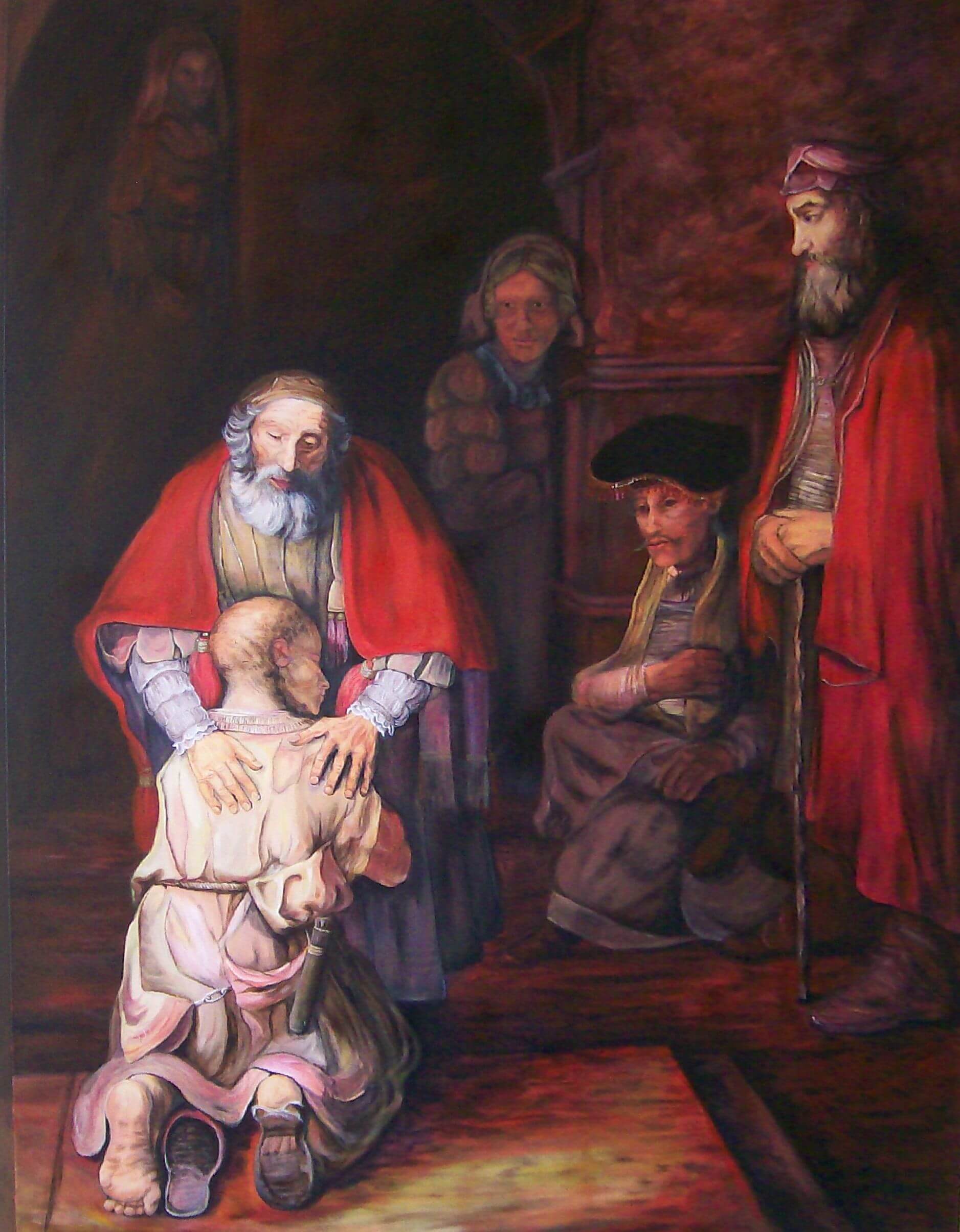Homily for Lent 4, March 31, 2019
Sherman Hesselgrave
Joshua 5:9-12 Psalm 32 2 Corinthians 5:16-21
Luke 15:1-3, 11b-32
There is no way to write a sermon and be oblivious to what is happening in the world around us. Two weeks ago, on the Ides of March, fifty people lost their lives in a shooting rampage at two New Zealand mosques. Millions turned out around the world to grieve the horrific loss of lives. This week, closer to home, a Muslim woman from Philadelphia was being sworn in as a new state representative in Pennsylvania, and at that legislative session another freshman representative, a Christian, was given the opportunity to offer an invocation. In her minute-and-48-second “prayer” she invoked the name of Jesus 13 times, in such an obviously targeted way that an offended member in the chamber actually shouted, “Objection!” It was probably foolish of me not to give up Facebook for Lent, since I then felt compelled to find her official FB page and leave a comment. Of course, that released the proverbial Kraken, and a swarm of people who identify as Christian were not going to be convinced that the God of Jews, Christians, and Muslims was, indeed the same God, or that there was anything inappropriate about a politician using the name of Jesus as a cudgel in a secular government setting.
So, when I sat down to work on this sermon, and I started reading today’s parable, I got only as far as “There once was a father who had two sons” before I hit a speed bump. If Jesus had paused at that point in telling the story, what images would have come to mind for his Jewish audience? I immediately thought of two. Abraham had two sons: Isaac and Ishmael. And Isaac had two sons: Jacob and Esau. Ishmael was sent into exile, but for many Muslims is the genealogical link to Abraham. Esau and his trickster brother, Jacob, parted ways on hostile terms after Jacob swindled his older brother out of his birthright. On the eve of their reunion, Jacob has a nightmarish struggle with an angelic being, which earns him a new name: Israel. His fear and anxiety that Esau would settle the score when they met turned out to be for naught, for Esau had let go of his resentment long before.
Estrangement and reconciliation. I found myself seeing the recent violence and religious hate speech toward Muslims in the estrangement within this parable, and I found the outpouring of grief and gestures of solidarity and reconciliation also embedded in this parable, even though I hit a speed bump at “There was once a father who had two sons.”
The apostle Paul, too, in his dealings with the church at the wild, port city of Corinth, reminds the community there of the centrality of the work of reconciliation. “All is from God,” he writes, “by whom and to whom we have been reconciled through Christ. God gave us the servant-work of reconciliation.” No one needs to disabuse me of the difficulty the work of reconciliation represents. Take the first reading, for instance. On the one hand, it is the happy ending the Hebrew slaves dreamt of when they were delivered from slavery in Egypt. All their whining and acting out in the wilderness is now behind them. They have arrived at the promised land. They don’t need to collect daily manna from heaven, because they have made the transition from nomads to farmers. They have moved into land they are claiming for a homeland, and there is no territorial acknowledgement of the people who were there before them.
It is impossible for us to avoid thinking of this happy ending as something else altogether, because we know how it was extrapolated during the age of European exploration as justification to claim whatever new lands were encountered for European monarchs, no matter who happened to inhabit them. It also continues to be a factor in the Holy Land today, where people who lived for centuries on biblically mentioned lands find themselves separated from land their families lived on for generations.
The first step toward reconciliation is an acknowledgement of our common humanity. Hatred is one manifestation of dehumanization. When one no longer sees someone as a fellow human being, and persuades others to embrace the same attitude, it doesn’t take much to set off a chain-reaction of hateful destructiveness. Kindness, on the other hand, is an acknowledgement that we are all of the “same kind.” It was the equivalent of a Copernican revolution when Paul wrote that, in Christ, there is “neither Jew nor Greek, neither slave nor free, male nor female, for all are one in Christ.” It has been nearly two thousand years since those words were first written, and we are still wrestling to make them a reality.
For our offertory hymn today, I chose a text I wrote in 2012, when Chris Lind invited me to lead worship at the Sorrento Centre in BC for a week. I didn’t know until a couple days ago that Michael Shapcott, the current Executive Director of the Centre (and a member of the Holy Trinity diaspora), would be with us this morning, but consider it a holy coincidence. At the time the Centre described itself as “a holy place of transformation for learning, healing and belonging.” So, I focused our daily worship that week around some of the great stories of transformation in the Bible, including today’s gospel parable, and summarized them in a Canticle of Transformation.
Transformation can describe myriad different phenomena. There is the transformation of a caterpillar into a butterfly, a child into an adult, an enemy into a friend, or a skeptic into a believer. Transformation can also describe deploying resources to provide clean water after decades of boiled water advisories. Transformation could also describe a treaty of peace between parties that have been warring for years. Transformation, too, is the newcomer to a new country, learning a new language and creating a new life. Transformation is also using democratic tools to correct abuses of those in power.
Holy Trinity is in the process of a kind of transformation as we move into another way of living out our mission in the world. The strategic planning process will be phased in one step at a time, and, because we’re doing a new thing, the learning curve might be a bit saw-toothed. But everyone is welcome at the table, and everyone has something to offer as we give glory to God, whose power, working in us, can do more than we can ask or imagine.






